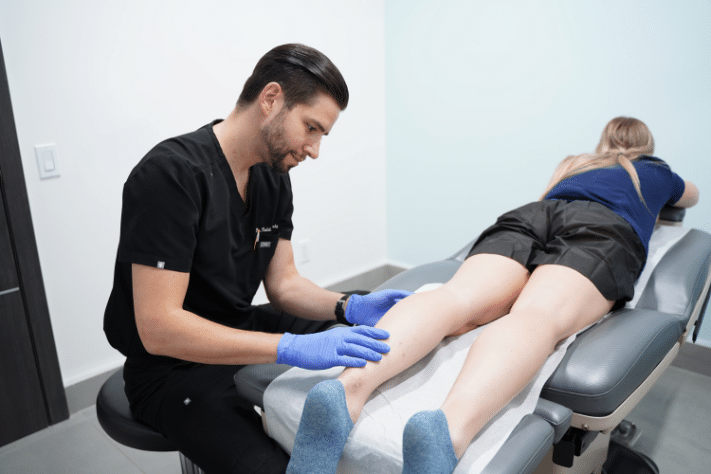What Treatment Options are Available for Varicose Veins?
Varicose veins are a common medical condition that affects millions of people worldwide. While they are often considered a cosmetic concern, varicose veins can lead to discomfort, pain, and, in severe cases, more significant health issues. If you're dealing with varicose veins, you may be wondering about the available treatment options, insurance coverage, and when it's essential to consult a vascular doctor for proper care. In this comprehensive guide, we will delve into these aspects to help you make informed decisions about your varicose vein treatment journey.
Understanding Varicose Veins:
Varicose veins are enlarged, twisted veins that typically appear in the legs. They develop when the valves in the veins fail to function correctly, causing blood to pool and the veins to bulge. While they can be unsightly, varicose veins can also cause symptoms such as pain, swelling, cramping, and a heavy or achy feeling in the legs. In severe cases, they can lead to skin changes, ulcers, and blood clots.

Treatment Options for Varicose Veins:
Several treatment options are available for varicose veins, and the choice of treatment depends on the severity of the condition and individual patient preferences. Here are some common treatment options:
- Conservative Measures: In mild cases, lifestyle changes and conservative measures may be recommended. These can include elevating the legs, regular exercise, wearing compression stockings, and maintaining a healthy weight. These practices can help alleviate symptoms and prevent varicose veins from worsening.
- Minimally Invasive Procedures: For more significant varicose veins, minimally invasive procedures are often the preferred treatment choice. These procedures include:
- Endovenous Laser Ablation (EVLA): This technique uses laser energy to seal the affected vein, redirecting blood flow to healthier veins.
- Radiofrequency Ablation (RFA): RFA employs heat generated by radiofrequency energy to close the problematic vein, improving circulation.
- Sclerotherapy: A chemical solution is injected into the vein, causing it to collapse and gradually fade away.
- Surgical Intervention: In rare cases or for severe varicose veins, surgical procedures may be necessary. Surgical options can include vein ligation (tying off the affected vein) or vein stripping (removing the vein altogether). These procedures are typically done under general anesthesia and require a longer recovery period.
Are Varicose Veins Covered by Insurance?:
The coverage of varicose vein treatment by insurance can vary depending on several factors. In many cases, insurance providers may cover treatments that are considered medically necessary. If your varicose veins are causing pain, discomfort, or complications, and if conservative measures have been unsuccessful, your insurance is more likely to cover the cost of treatment. However, insurance coverage can also depend on your specific plan, so it's essential to check with your provider to understand your coverage and any out-of-pocket expenses.

When to see a Vascular Doctor:
Knowing when to seek the expertise of a vascular doctor (also known as a vascular surgeon) is crucial in managing varicose veins effectively. Here are some signs that indicate it's time to consult a vascular specialist:
- Persistent Symptoms: If you experience persistent pain, swelling, or discomfort in your legs due to varicose veins, it's essential to seek medical evaluation.
- Skin Changes: Skin changes around the varicose veins, such as discoloration or the development of ulcers, should be promptly addressed by a vascular doctor.
- Bleeding: If varicose veins bleed or become tender, it's a sign of potential complications and requires immediate medical attention.
- Difficulty in Daily Activities: Varicose veins that interfere with your ability to perform daily activities or affect your quality of life should be discussed with a vascular specialist.
- Concerns About Cosmetic Appearance: While primarily a medical concern, many people seek treatment for varicose veins due to cosmetic reasons. If you are unhappy with the appearance of your varicose veins, a vascular doctor can discuss potential treatment options.
Conclusion:
In conclusion, varicose veins are a common condition with various treatment options available, ranging from conservative measures to minimally invasive procedures and surgery. Whether your varicose veins are covered by insurance depends on several factors, including the medical necessity of the treatment and your insurance plan. If you are experiencing symptoms or have concerns about varicose veins, don't hesitate to consult a vascular doctor. Early evaluation and treatment can help manage symptoms, improve your overall vascular health, and enhance your quality of life.
Comments
Post a Comment